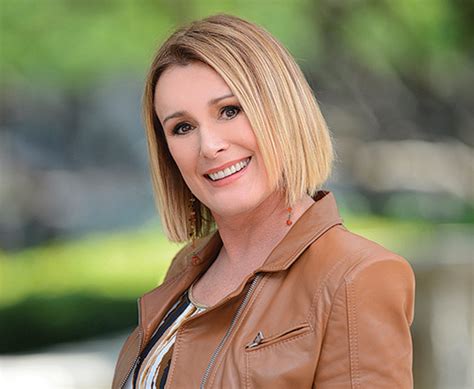A Quote by Atul Gawande
This was not guilt: guilt is what you feel when you have done something wrong. What I felt was shame: I was what was wrong.
Related Quotes
The difference between guilt and shame is very clear--in theory. We feel guilty for what we do. We feel shame for what we are. A person feels guilt because he did something wrong. A person feels shame because he is something wrong. We may feel guilty because we lied to our mother. We may feel shame because we are not the person our mother wanted us to be.
Make friends with guilt. Guilt is a beautiful emotion that alerts us when something is wrong so that we may achieve peace with our conscience. Without conscience there would be no morality. So we can greet guilt cordially and with acceptance, just as we do all other emotions. After we respond to guilt, it has done its job and we can release it.
Segregation, as even the segregationists know in their hearts, is morally wrong and sinful. If it weren't, the white South would not be haunted as it is by a deep sense of guilt for what it has done to the Negro - guilt for patronizing him, degrading him, brutalizing him, depersonalizing him, thingifying him; guilt for lying to itself. This is the source of the schizophrenia that the South will suffer until it goes through its crisis of conscience.
Despite their differences, pride, shame, and guilt all activate similar neural circuits, including the dorsomedial prefrontal cortex, amygdala, insula, and the nucleus accumbens. Interestingly, pride is the most powerful of these emotions at triggering activity in these regions - except in the nucleus accumbens, where guilt and shame win out. This explains why it can be so appealing to heap guilt and shame on ourselves - they're activating the brain's reward center.
When we hold onto the negative in ourselves it comes with endless guilt. We hold onto a lifetime of floating visions and regrets about what we should have done or should have become. Conscience recognizes wrong and tries to atone. But guilt turns into resentment. Conscience brings us closer to each other; guilt drives us apart. Create a new feeling. Every time guilt settles in your stomach, write "I forgive" on a piece of paper. Send it up the chimney, tear it up and flush it, put it in the garbage. Don't eat it.
The best definition I've heard is that guilt is about what you've done, shame is about who you are. If something's out of my control, I don't feel shame about it, because what could I have done? If you're guilty, you can at least try to atone for it or make it better or not do it again. If it's who you are, you can't do much about it except change yourself, and that's pretty hard.





































